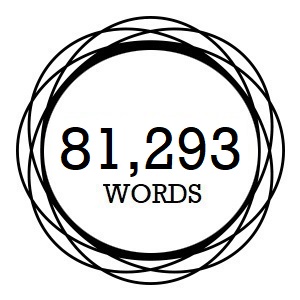81,293
 I have only the vaguest recollection of my first submission – a (long) short story to some magazine (I can’t remember which exactly) way back in the late 1980s.
I have only the vaguest recollection of my first submission – a (long) short story to some magazine (I can’t remember which exactly) way back in the late 1980s.
The story was an action story. I remember the story specifically. I still have it (and wrote two sequels, as well as a prequel before prequels were fashionable). One day, I’d like to do something with it although, in retrospect, it’s probably better suited to a screenplay.
The magazine was one of those women’s periodicals, like Woman’s Day – although I don’t think it was that particular one. It was one that did publish short stories, though. I wouldn’t have just sent it blindly to one that didn’t publish stories. I was clueless, but not that clueless.
That submission was the submission that started a long, long, long career in rejection.
When I was younger, I didn’t submit as actively as I should have. Short stories went out to a few places. Novels just sat there, as I had no idea where they should go, and how they should go.
This was pre-internet, so I couldn’t just Google prospective markets. Also, as it was pre-internet, I had to mail hardcopies and enclose a SSAE – a Stamped Self-Addressed Envelope – so they could insert my story
along with my rejection
and send it back to me. This was expensive, paying for two lots of postage. But hope fuelled me. And naivety. And stupidity. So every time I saw one of my yellow stamped self-addressed envelopes poking out from the slit in the mailbox, I felt that acceleration of my heartbeat, and that belief that my submission had been accepted.
I’d savour that moment of anticipation, open the envelope, and then pull out the form rejection – if you don’t know, a form rejection is something standard (Thank you for your submission. Unfortunately, it’s not quite right for us. But we wish you all the best in the future) they send out, personalising only the name of the author. (Somebody once called me ‘Leo’, though.)
Moving through the years, I segued into screenwriting and then, I was sending around both screenplays (some internationally, which cost heaps) and short stories. I had some minor (minor isn’t a big enough word to quantify how small the amount) successes, but the rejections were the thing.
Then I came back around to manuscripts. Thanks to the passing of the years, tertiary study, and (the book version of) The Australian Writers Marketplace, I’d learned about publishers and submitting. Even though the internet now existed, lots of markets still wanted hardcopy submissions. So I kept submitting, but when I saw that fucker of an envelope back in my mailbox, I knew what it meant. I did get some personalised rejections, which was encouraging. It showed me I was closer – they were taking time to encourage me. But they were still rejections.
Moving into the age of email submissions, I started submitting frequently. If somebody rejected a short story, I’d read and revise it, then send it straight back out. I usually wouldn’t read and revise a whole manuscript (well, I would if it was rejected enough), but I would send it back out. Everything had to be constantly in motion. This is writing. It’s about perseverance. It’s about moving forward.
Or at least trying to.
Because those rejections can crush you – figuratively and literally.
My dear friend Laurie Steed (you should read his novel You Belong Here) once told me, ‘Every rejection brings your piece one step closer to its eventual home.’
That’s something to hold onto. But it can be hard to carry on.
Rejection will make you question everything you can about your writing: the quality of your writing, the story you want to tell, and you as a commodity. When you get enough rejections, you begin questioning yourself obsessively, whether you’re submitting or not. It’s very easy to transition into identifying with rejection and, parallel to that, failure.
When you find somebody – or somebody finds you – that believes in your work, that accepts you, it is amazingly gratifying, especially when others might’ve rejected that same work.
There’s no guarantees in publishing, like there aren’t in all of the artistic fields. It comes down to subjectivity. As far as publishing goes, there’s tons of books that are rejected repeatedly, which finally find a home, and become huge hits (Harry Potter is always the best example), as well as tons of books that publishers pay big money for and which they push majestically, and yet do very little.
So what your truth comes down to – more than reviews, more than sales, more than anything else – is that belief somebody has in you, your story, and your ability to tell that story.
Thus, a big thank you to Pantera Press, for their belief first in Just Another Week in Suburbia, and my new book (due out in just under two weeks), August Falling.
Thank you.
Postscript: You may have noticed the word count hasn’t gone up much on my work-in-progress. There’s two reasons. One: I’ve been asked to lead the Liberal Party and, thus, the country, but I just don’t think I’ll have the time. And, two: I’m stuck on a pivotal scene that I’ve rewritten four days in a row. Usually, I wouldn’t let something anchor me this way, but it’s really, really, really important (← good writing).